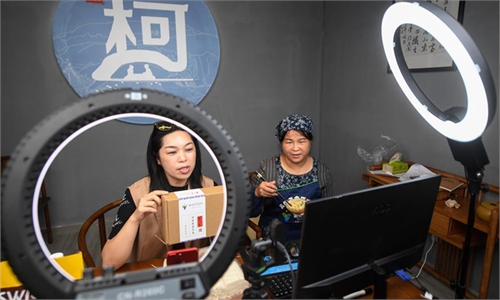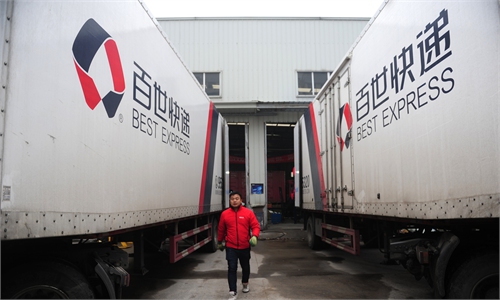
File photo
US President Donald Trump is reportedly looking to restricting other Chinese technology companies in the US, such as China's e-commerce giant Alibaba Group. This comes after his recent move to block ByteDance's TikTok and Tencent's WeChat apps.Unlike TikTok, the short video sharing app developed by ByteDance, Alibaba and Tencent, which have an enormous presence in the Chinese internet world, have not expanded as quickly in overseas markets.
But it is worth noting that WeChat recorded a surge in app downloads after Trump signed an executive order to ban the app, with many users in the US rushing to install it before the ban takes effect. WeChat downloads in the US spiked by 41 percent during the six-day period after the ban announcement, according to data from Sensor Tower.
What has happened to WeChat begs the question as to whether there is any possibility that this kind of political suppression by Washington could also stimulate Alibaba's market expansion in overseas markets.
If the Trump administration really moves to restrict Alibaba's businesses, people around the world will be interested to know how successful Alibaba is, considering that the US government is overly sensational and obsessed with national security concerns.
To a certain extent, it could also be an opportunity for the Chinese tech giant to show the world how it has helped American farmers and businesses connect with Chinese consumers over the years.
Some American politicians may believe it is politically profitable to assault Chinese firms in the run up to the upcoming presidential election, but in reality it could be toxic to the US economy and its interests.
Over the past four decades, China and the US have developed close economic and trade ties, and any attempt to use political brute force to push for a decoupling from China would inevitably lead to lose-lose situation.
Take Alibaba for an example. The impact of a potential ban on Alibaba's business in the US may largely be limited, because the whole US market contributes to less than 3 percent of Alibaba's annual revenue, according to media reports.
Yet, even though the proportion of revenue is not high, there are still a large number of American small businesses and farmers relying on the Chinese-owned internet platform to sell US produce to Chinese shoppers.
Unlike TikTok, which is just an entertainment app for most Americans, Alibaba's platform has close bearing to American jobs and earnings.
By coercing Chinese tech companies, the Trump administration appears to be pursuing a decoupling from China starting with the technology sector, but in doing so it is increasingly isolating itself from the world.
Other countries will not simply buy its cliché national security excuses and follow it mindlessly. It is unthinkable for any company that wants to do business in China to disregard useful means of commerce, be it WeChat or Alibaba's e-commerce platform.
There is no denying that Chinese companies will face challenges and pushback in their efforts to explore some Western markets. Given the unprecedented political environment at present, it is possible the discrimination will get more intense in the future.



